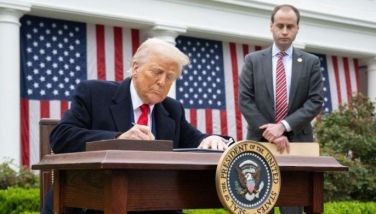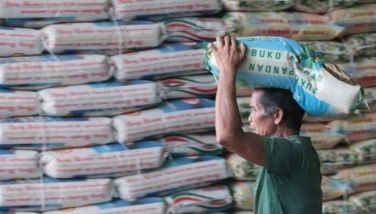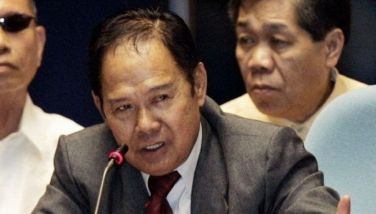DTI renews push for RCEP approval
MANILA, Philippines — The Department of Trade and Industry (DTI) has renewed its call for the immediate Senate concurrence of the Regional Comprehensive Economic Partnership (RCEP) agreement as it warned the country’s delayed participation could lead to forgone investment opportunities.
In a statement, Trade Secretary Ramon Lopez emphasized the imperative need to immediately act on the concurrence of the RCEP, a mega trade deal set to take effect on Jan.1 next year for countries that have completed the ratification process.
He said not joining or delaying participation in the RCEP may disrupt the economic growth of the country which averaged 6.6 percent before the pandemic and stood at 4.9 percent for the January to September period this year, and even negatively impact investments.
“Investments will shy away from the countries who are not participating, and there will be capital flight and lost investment opportunities,” he said.
He said opting out or delaying participation in the RCEP would send a signal to potential investors that the country is not keen to promote greater openness, create a more business-friendly environment, encourage closer integration of economies, and provide a more stable and predictable rules based trade system.
“This may impact the country’s ability to attract foreign direct investments, especially when compared with our ASEAN (Association of Southeast Asian Nations) neighbors that are already part of the RCEP. This may also affect other international trade engagements we are pursuing,” he said.
Non-participation to the RCEP could also lead to trade being diverted away from the Philippines to other countries part of the deal that enjoy preferential treatment from the enhanced market access, wider sourcing of raw materials and transparent trading system.
“If our goal is to strengthen the Philippine economy, following the detrimental impacts of COVID-19, non-participation or delayed participation in RCEP is not a strategic move,” Lopez said.
RCEP, which forms the world’s largest free trade area and covers a third of the global economy, was signed by the Philippines and other ASEAN countries such as Brunei Darussalam, Cambodia, Indonesia, Laos, Malaysia, Myanmar, Singapore, Thailand and Vietnam, as well as trade partners Australia, China, Japan, South Korea and New Zealand in November last year.
To date, six ASEAN members and the five non-ASEAN trade partners have deposited their respective instruments of ratification.
Last year, RCEP countries represented 51 percent of Philippine exports, 68 percent of the country’s imports, and 58 percent of investments.
Philippine Institute for Development Studies research fellow Francis Mark Quimba said estimates have shown the Philippines and Vietnam stand to gain the most in terms of real gross domestic domestic product growth under the RCEP due to lower trade costs and higher factory gate prices.
A study conducted by Caesar Cororaton, research fellow at the Virginia Polytechnic Institute and State University and visiting scholar at the De La Salle University, also showed the country could see significant gains from the RCEP in terms of trade, economic growth, poverty reduction and overall welfare.
Earlier this month, a study released by the UN Conference on Trade and Development said that even for countries that may initially be negatively affected by trade diversion effects by the RCEP, it would be better to be in than out of the deal given benefits in terms of additional trade that can offset losses, as well as foreign direct investment, technology sharing and structural transformations.
- Latest
- Trending





























